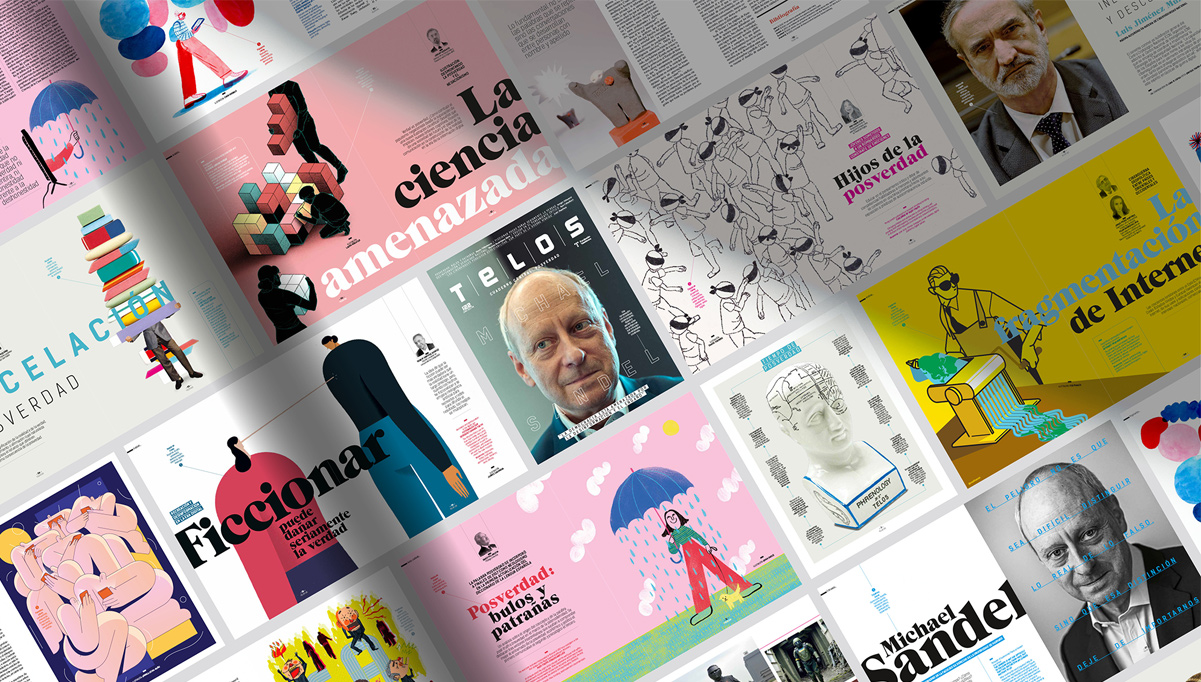15.06.2023
TELOS 122 reflects on post-truth
Post-truth is a social phenomenon that causes falsehood to be confused with reality and truth to fade away. Against this backdrop, misinformation spreads ever more rapidly, influencing and conditioning decisions and distorting our ability to perceive. It is therefore crucial to strengthen critical thinking and media literacy to meet this challenge.
Issue 122 of TELOS magazine, dedicated to post-truth, features two interviews with leading experts on the subject. On the one hand, it features Michael J. Sandel, also on the cover, a renowned professor, lecturer, philosopher and writer who shared his perspective on the challenges facing modern societies. This issue also features an interview with Luis Jiménez Muñoz, deputy director general of the National Cryptologic Centre (CCN), an entity attached to the National Intelligence Centre (CNI) in charge of coordinating and implementing the National Cybersecurity Strategy.
TELOS 122 reflects on post-truth

The new issue of the magazine looks at how manipulation, fake news and misinformation have been driven by new technologies and artificial intelligence
TELOS 122 is dedicated to post-truth and, as the director of the publication, Juan M. Zafra, reflects in the editorial of the issue: “In the post-truth era, truth has become relative, subjective and individual; what one feels or wants to believe is valued more than the tangible evidence of data and verified facts”.
Darío Villanueva, philologist and author of Poderes de la palabra, opens the issue as guest author with the article Posverdad: bulos y patrañas.
Post-truth time
The Post-Truth Central Notebook, illustrated by Sean Mackaoui, presents different perspectives on the subject through five authors. Roberto Gelado tackles the disinformation game, Eva Moya reflects on artificial intelligence and freedom of thought, Fernando Bonete explores the dynamics of cancellation, Marina Rodríguez focuses on national security, and José Luis González analyses the role of artificial intelligence in the post-truth era.
Other related social concerns are addressed in the Analysis section. Sergio Sánchez talks about disinformation, Ana Caballero focuses on youth and post-truth, Jeremy Mederos discusses post-truth and denialism in science, Jorge Pérez and Pilar Rodríguez discuss geopolitical cyberwarfare and internet fragmentation, and Eduardo Arriagada addresses polarisation and the power of listening.
In Experiences, United Unknown, creators of satirical videos and images, write about the importance of fearing not artificial intelligence but ourselves.
The Communication issues section features articles on media governance by Elena Herrero-Beaumont and gullible disbelief by Montserrat Crespín.
Issue 122 of TELOS concludes with the Regulation section, which includes articles on deepfakes, distortion of reality and legal challenges by Michelle Azuaje-Pirela and a legal approach to disinformation in the digital society by Vicente Moret and Ignacio Sánchez.
Finally, the new Artefacto section presents a narration by Mario Tascón about El monstruo de Tagua Tagua, a false information from the 18th century, as a preview of the exhibition preview of the exhibition Fake News which opens on 14 June at Espacio Fundación Telefónica and can be visited until 19 November.